⚡ TL;DR: Not sure whether to operate as a freelancer or set up a Limited company? This article compares the two in terms of tax, admin, credibility, and flexibility — helping you decide which structure suits your business goals. GoSolo can support you if you choose the Limited company route.
The Number One question we receive here at GoSolo is whether to be a freelancer (“Sole Trader”) or to register a Limited Liability Company.
The answer depends on your goals, your potential income level, and what kind of risks you’ll be accumulating to yourself in your business. Here are the things to consider when making your choice.
1. Liability for Debts
When you register a Limited Liability Company, the company becomes a separate legal entity to you and becomes a “legal person” with full legal rights and duties. This means that the company has its bank account, its earnings and, hence, its debt.
If the company is not able to pay its debt for whatever reason, then your wealth is saved from any consequences that might occur as a result of that. The only liability you will have for the company’s debts is what you initially put into it in terms of share capital (which can be as low as £1).
As a sole trader, however, banks and creditors could take everything you own to settle your debts, including your house and the shirt on your back!
Some businesses must be high on monthly debt (mortgages, supplier costs, etc.) to keep running. In this case, a Limited Liability Company is almost always the safer option.
2. Taking money out of the company
Because the Limited Company becomes a separate “legal person”, you are not allowed to simply take money from that legal person whenever you wish, just as you aren’t allowed to rob someone on the street.
As a freelancer, however, the money you make in your business is automatically yours.
As the director of a Limited Company, you can draw a predetermined salary from the company. But there is quite a rigamarole to go through whenever you need to receive a dividend payout, consisting of a directors’ meeting (even if you are the sole director), replete with printed minutes which must be signed and kept. You also have to review the profit reserves, print a dividend voucher, and so on.
Although dividend payouts are free from NI deductions, there’s always the chance that HMRC might find a problem with your dividend payout if it is not done entirely by the book.
3. Taxes
This is a detailed and complicated subject, so we will only cover the basics at a high, conceptual level.
Generally speaking, the more you earn, the more likely you are to save on your final tax bill. If you own a Limited Company, provided you structure your salary and dividend payments correctly! The reason for this is that personal income and corporate income are taxed very differently.
You pay Personal Income Tax on the money you earn as a freelancer. As it stands, the tax rates range from 0% (for earnings up to £12,500) to 45% on income above £100,000 per year. Corporate tax is more straightforward and is currently fixed at 19%, irrespective of the amount earned.
While you might pay tax twice if you own a Limited Company (both personal and corporation tax), this does not necessarily mean you will pay more tax. Indeed, one of the reasons people start Limited Companies is that you can save on your final overall tax bill if you structure your earnings properly. That’s very important to know.
There are personal taxes on dividends, and there is corporation tax, which the company itself has to pay.
By structuring your earnings so that you can stay within the free or basic rate allowances for (1) personal salary and (2) dividend payouts, you could lower your overall tax bill by many thousands of pounds.
A common strategy is to “spread” your earnings over a few years so that you stay within the lower tax ranges throughout those years and save on tax in the long term.
Already running a business? Handle money and accept payments in one app.
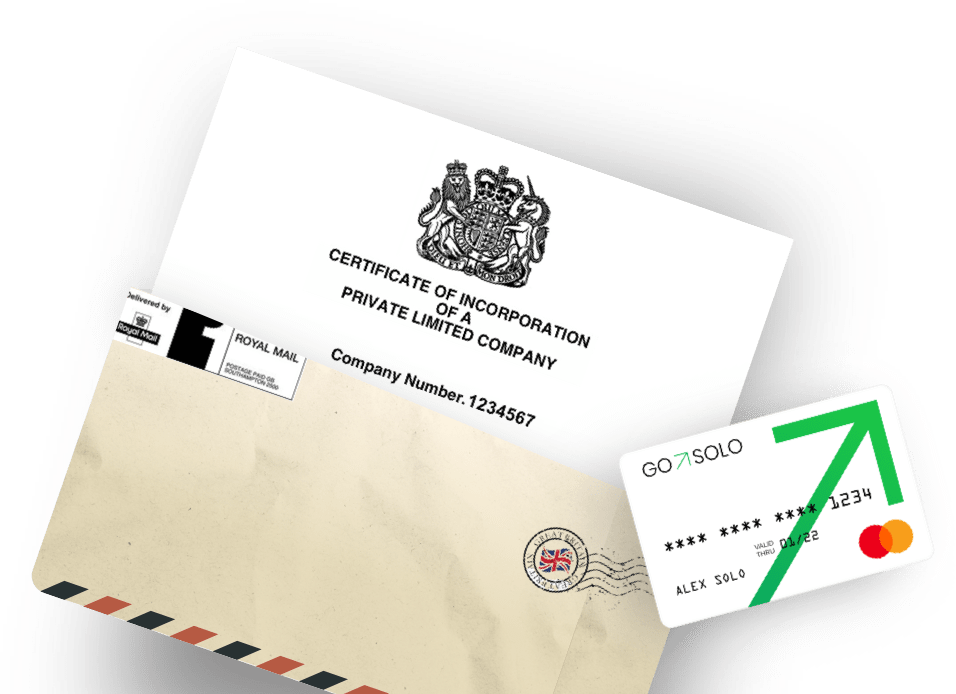
4. Employees
You can employ people whether you’re a freelancer or a Limited Company. Regardless of the structure you use, you will still need to have Employers’ Liability Insurance and adhere to all the regulations regarding having employees.
Of course, this matter of limited liability for debts comes into play again. If you ever get involved in a legal spat with one of your employees and the costs of litigation skyrocket, you will personally be liable for those costs, even if the lawsuit was against the business itself.
5. Raising Funds
If you need a lot of startup capital to get your business going, you’re highly unlikely to raise that capital as a freelancer.
Investors want to deal with companies whenever they pump hundreds of thousands (or even millions) of dollars or pounds into it. The very reason they invest is to have shares in the company and receive profits from it later on.
You cannot provide shares in your company if you do not have a company in the first place.
6. Setup
To set up as a sole trader, you simply “put your shingle out” and start operating. You can even accept invoice payments into your personal bank account if you wish (although this is not advisable from an accounting perspective because it can get too complicated).
But to start operating as a company, you need to register the company at Companies House, and then you need to open a business bank account. There’s a lot of paperwork involved in that, but GoSolo can register your company and give you a business bank account in only ten minutes, making the procedure easy and seamless.
7. Business Name (and Branding)
If you’re a sole trader and want to do business as “Joe’s Plumbing”, nothing can stop your neighbour (who is also called “Joe”) from doing the same, thereby resulting in brand confusion.
As a limited company, however, your business name cannot conflict with any other business name that is already registered.
Securing your unique business allows you to build a brand around it, which is crucial to any business’s success in this modern age.
In our experience, sooner or later any successful person will need to incorporate a business. The tax savings alone make it necessary. The simplest way to do it is to sign up for GoSolo where all the paperwork is filled out only once and your business will be up and running — with a business bank account — in no time.
We’re not just saying that. It really is that easy, which is the whole reason we created GoSolo in the first place.
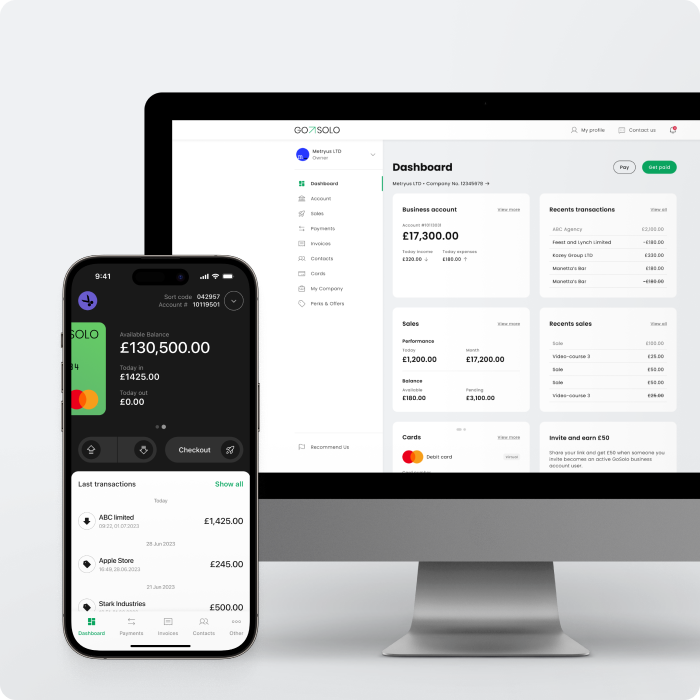

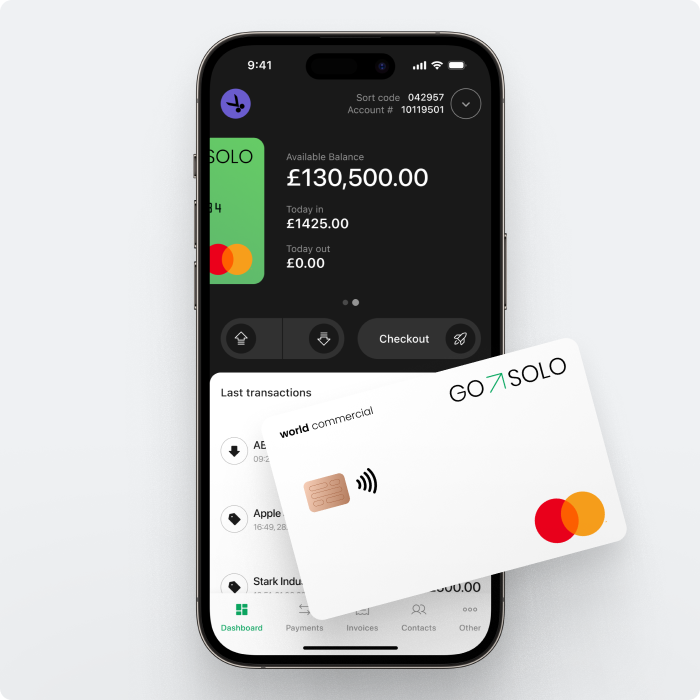
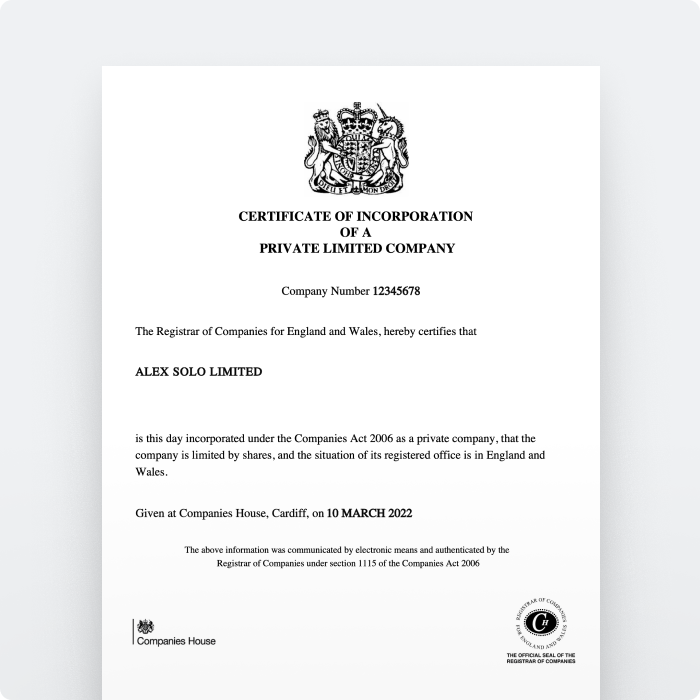
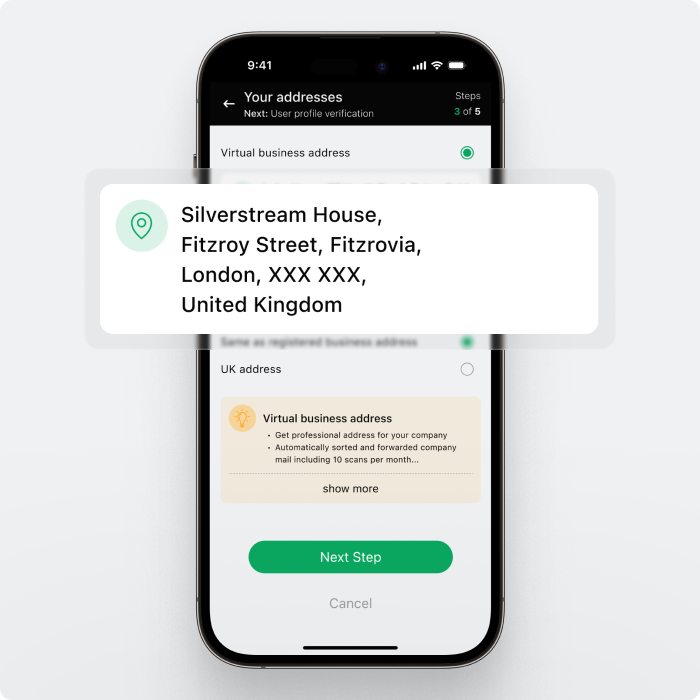
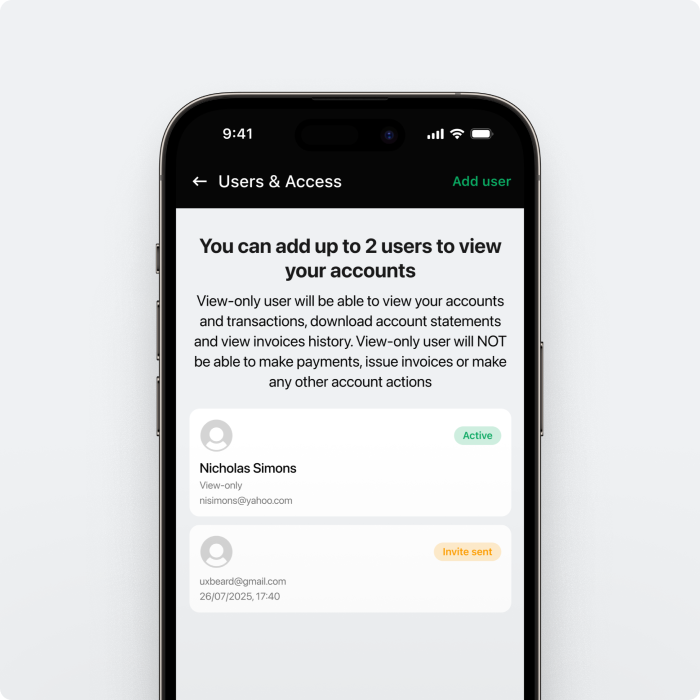
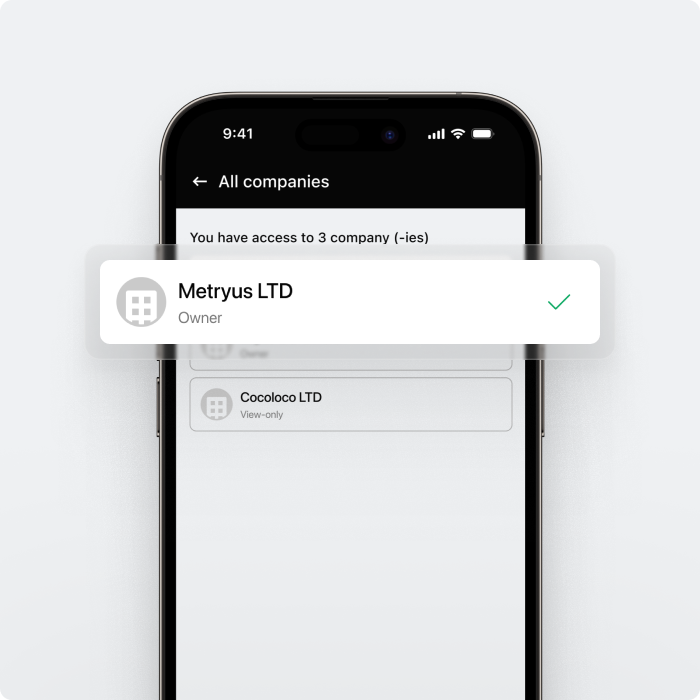
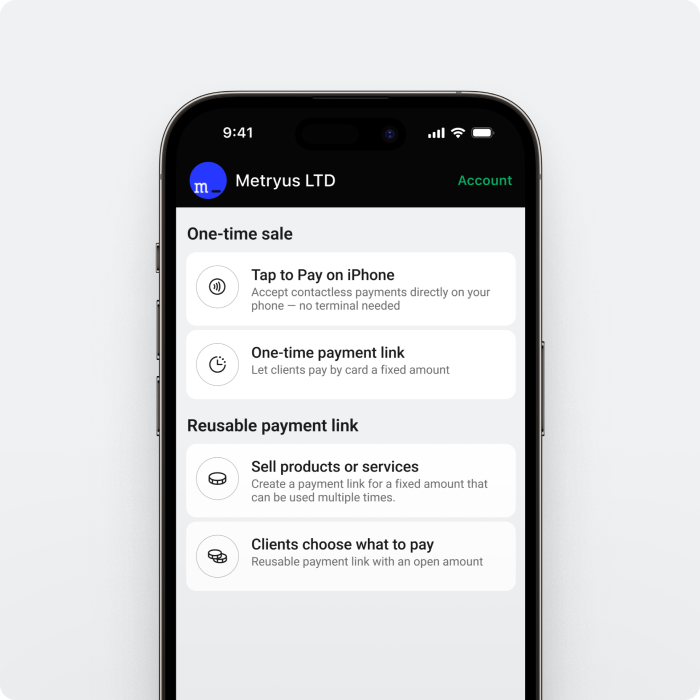
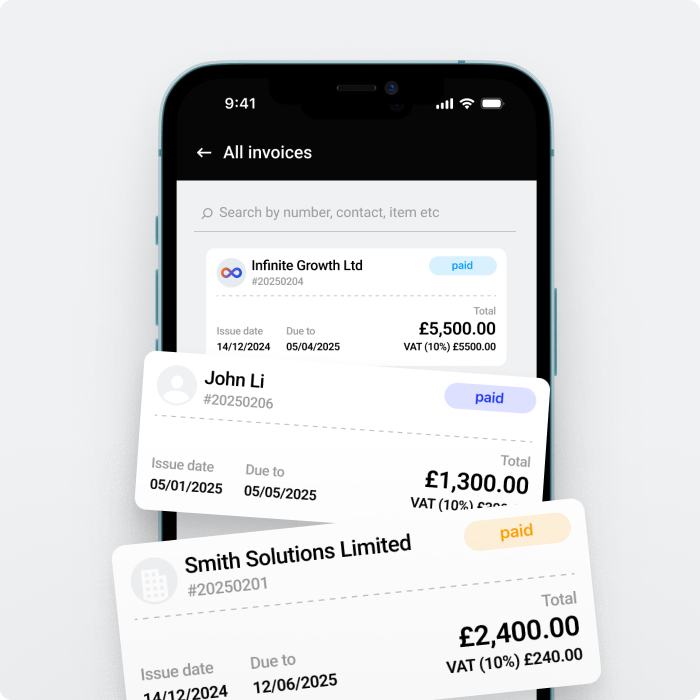

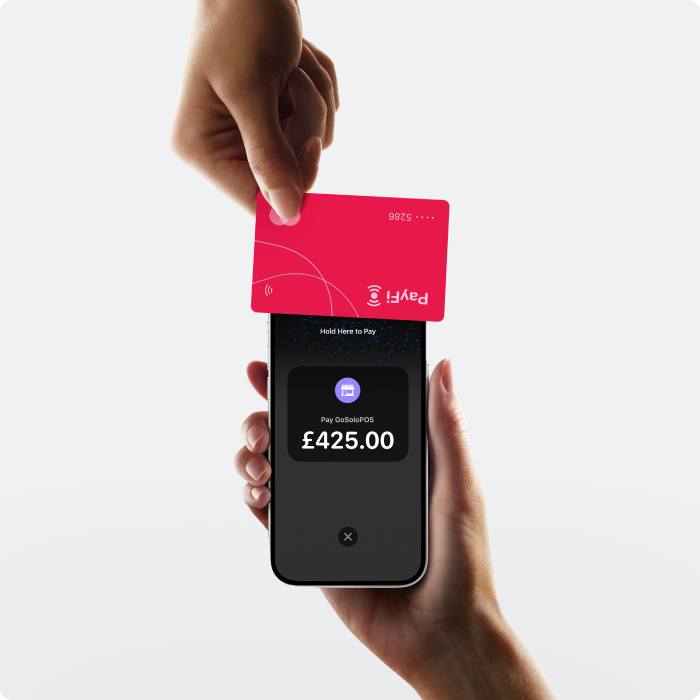







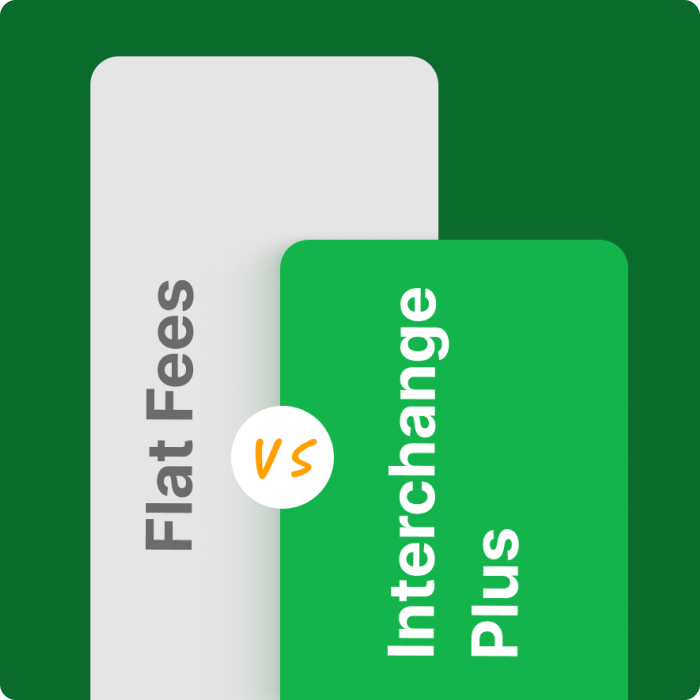

 Back to Blog
Back to Blog
